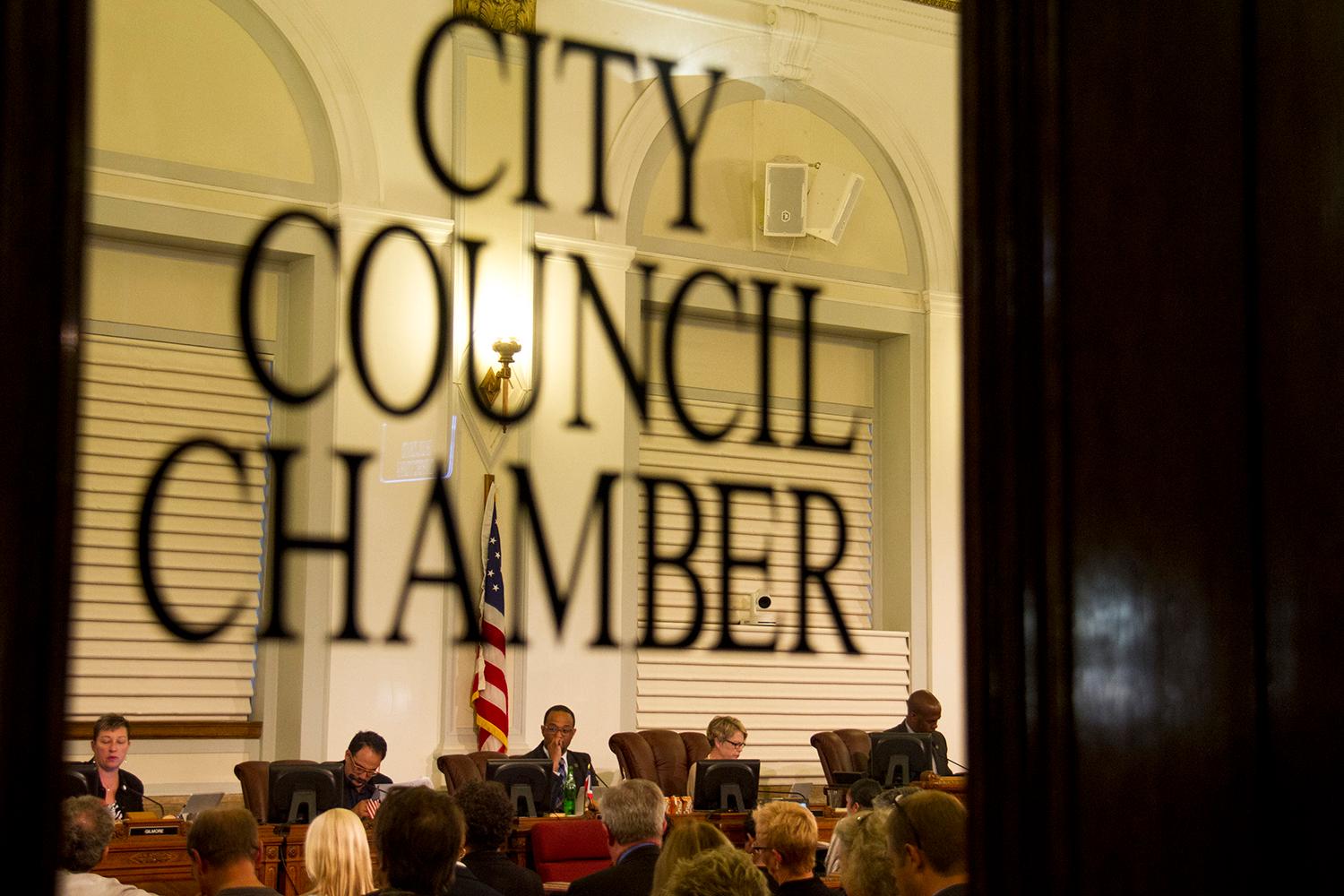Denverite invites thoughtful people to submit op-eds about Denver. In the What I’ve Learned/How I Learned series, we’ve already heard about the language our leaders and politicians use, driving for Uber and starting a cat cafe.
By Bree Davies
Denver, we have a big chunk of money we’re about to borrow from ourselves -- $937 million dollars, to be exact -- and in November, we get to vote on how that money will be used. Over the last few months, Denver City Council, the Mayor’s Office and other invested parties have been debating who and what in Denver will get funded with the 2017 General Obligation Bond, or the GO Bond for short. While many worthwhile city projects are set to get some necessary funding, I was shocked to learn that not a single dollar has been put aside for solving Denver’s affordable housing crisis.
I've made my way to a few of City Council's weekly meetings lately, slowly gathering the courage to speak up about issues that matter to me. The GO Bond was an opportunity I could not waste -- there's a lot of money at stake and the affordable housing crisis in Denver is something that keeps me up at night. I thought now was the time, and I was ready to step up to the podium and talk about housing solutions. Unfortunately, my attempt at participating in civic discussion turned out to be much more cumbersome and embarrassing than I expected.
I've always been an active voter in both national and municipal elections, but it wasn't until recently that I figured out just how much of the day-to-day decision-making by entities like City Council is open to the public.
When I read that citizens would have a chance to share their opinions with City Council at a meeting on the proposed allotment of this almost-billion dollar bond, I got to work writing down my thoughts.
On the Monday set aside for a first public reading and discussion of this GO Bond, I found out through the City Council’s Twitter account that there would be a one-hour courtesy hearing starting at 5:30 p.m. I went online and signed up to speak at what I thought was this discussion period. What I didn’t know was that I had signed up for the “general” comment session -- a session that happens monthly at 5 p.m.
I walked into City Council Chambers at 5:26 p.m. “I’m early!” I thought to myself. “I’ve got this!” I’d been practicing my speech all day and was ready to face the intimidatingly tall wall of council members -- along with an unexpected gallery full of people and a crowd of reporters and cameras.
I thought I was early, and I saw my name was on a list on the door, along with other folks who would be speaking that night, which I thought reassured me that I had followed proper procedure for commenting.
Long, sad story short, I had signed up for “general comment” time at 5 p.m., when I really had meant to be in the room for the GO Bond commenting time. But I didn’t understand from the website that these were two different things. When I stepped in the room, Council President Albus Brooks was in the middle of making a last call for my comment -- I didn’t know he was talking to me. I was early, I thought, and he called Bree “Davis,” which isn’t my last name. It’s Davies.
Luckily, a friend of mine was running one of the news cameras that night and whispered, “Hey Bree, I think Albus just called you up.” Flustered, I shuffled my papers, pushed my sweaty hair out of my face and said “I’m Bree Davies.” Councilman Brooks gestured for me to come up.
Having just entered the room, I had no context for what was going on, so I just started talking. My voice cracked out of nervousness and did that embarrassing thing it does when I’m trying not to cry. I was confused and unsure of what I was doing. I word-vomited my carefully prepared speech to a pin-drop silent room. Before I knew it, my time was up and council was adjourned for a break. I ran out of the room knowing I had messed up.
I did not understand that the public comment and the GO Bond comment time were two separate events on the same night, in the same room, in front of the same people. When I signed up online to comment, it was not made clear that the public comment and the GO Bond reading were at totally different times. After all of that practice, I had messed up. I was embarrassed. I didn’t want to go back in that room ever again.
I was an arts and culture reporter and music critic in Denver for ten years. I’ve been on stages at music festivals both performing and introducing other musicians. I’ve hosted live conversations about tough topics like dictatorship with members of the activist art group Pussy Riot. I’m a confident person in the arena of tough, public events. But I’m just getting the swing of how municipal politics works and I have to say, it feels unnecessarily complex, not to mention intimidating and at times unwelcoming to a new-to-politics person like myself.
After I left the meeting, I sat in my car, tears rolling down my face as I frantically scrolled through Denver City Council’s tweets trying to figure out how I had messed up the times. I combed my email for any information that would signal that I signed up for the wrong part of the night’s agenda. I looked through the city’s website to find more information on how I was supposed to do the right thing.
It turns out that I spoke at the wrong time during the process of a City Council meeting, but you know what? General comment started at 5 p.m.; based on the city council’s tweets, I thought it was at 5:30 p.m. The discussion about the GO Bond didn’t even happen in that meeting until almost two hours later at around 7:30 p.m. I was long gone by then.
Have you ever tried to find anything on the city government’s website? Have you sat through council meetings before? I have a feeling that many folks are like me and have not. I thought if someone like me can’t figure out how City Council works, many other people must find it hard to participate, too.
I tried to imagine if I was a person whose first language wasn’t English and how intimidating the process could be. I thought about someone who had to leave their job early and take public transportation to get to this meeting to speak their mind, only to find that the time for them to speak wouldn’t come for two and a half hours after the meeting had begun. I’m a single, able-bodied person with a car and no familial or work obligations to attend to -- in other words, I could have been at City Council all night, waiting for my turn to speak. Not everybody has that opportunity and to me, I see this as inaccessible.
Isn’t something as important as deciding how our city spends almost a billion dollars of our money worth more than a comment section on a Monday night in the middle of an agenda? I think so. I know the voters get to ultimately decide in November where this money goes, but before that, our City Council decides some of that for us.
I use social media to preach daily to fellow Denverites about getting “civically engaged.” But if the process and schedule for participating isn’t transparent, how can we feel like we’re really a part of it? Imagine how much we expect from other entities in our lives -- our jobs don’t make it hard for us to find our schedules online. If I belonged to an organization with a website as hard to navigate as the city’s, I would probably not be a part of that organization for long.
What if City Council used social media like other organizations do? What if there was a Facebook event for every City Council meeting, with an outline of how to participate and what time to be there? What if we made the process of civic engagement as easy as everything else we do online?

Bree Davies is a writer, musician, community organizer, public television host and advocate for Denver's art and music community. Her proudest Colorado moment is starring in a print ad for Public Service as a child in the early '80s, where she was paid $100 and all the cookies she could eat.













